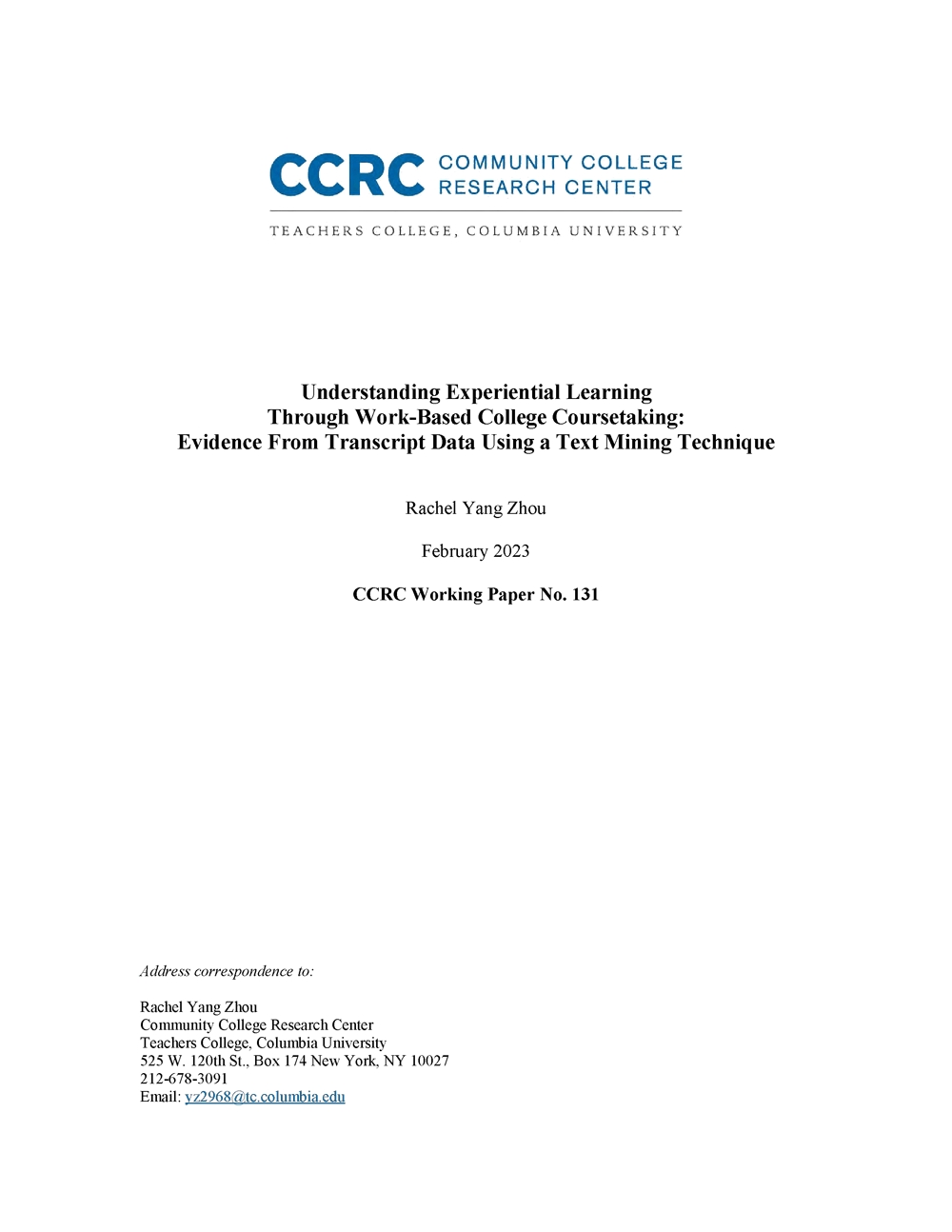
Experiential learning is critical to a smooth transition from higher education to the workforce. Work-based college courses, such as internships and practicums, may be useful in facilitating this transition. This paper applies an innovative text mining technique to identify and analyze work-based courses from transcript data. The paper examines patterns and post-degree labor market outcomes of taking work-based courses at two-year and four-year colleges in a large public college system. Findings show that approximately 15% of enrollees and 30% of graduates took a work-based course in the six years after college entry. Students typically earned credits from work-based courses, and they typically took the courses in later years of their programs. Moreover, work-based coursetaking varied largely across fields of study as well as colleges. While there was no significant racial disparity, female students, students who were younger at enrollment, and U.S.-born students were more likely to take the courses than their counterparts. Results show a positive association between work-based coursetaking in college and the probability of being employed after degree completion among both two-year and four-year degree completers, a positive association with post-degree earnings among four-year completers, and a negative association with post-degree earnings among two-year completers.
